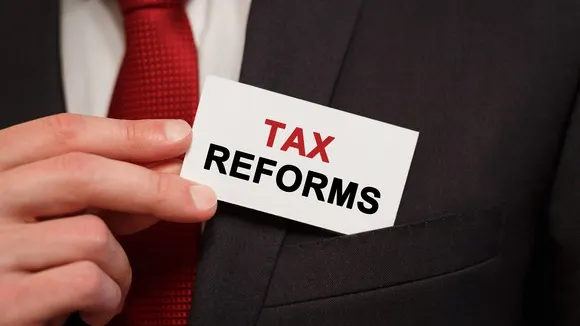
The U.S. government has introduced significant corporate tax reforms aimed at adjusting business taxation, enhancing economic growth, and addressing fiscal challenges. These changes affect corporations of all sizes, influencing their financial strategies, operational decisions, and long-term investment planning.
With new tax regulations altering corporate rates, deductions, and reporting requirements, businesses across sectors are reassessing their financial plans. This article examines the key aspects of these reforms, their impact on U.S. businesses, and how corporations are adapting to the evolving tax landscape.
Key Changes in Corporate Tax Policies 1. Adjustments to Corporate Tax RatesOne of the most impactful changes in recent tax reforms is the adjustment in corporate tax rates. Lower corporate taxes can boost business investments, while potential increases may lead to cost-cutting strategies, such as restructuring or relocating resources.
2. Changes in Deductions and IncentivesReforms have modified deductions on business expenses, including depreciation, research and development (R&D) incentives, and interest deductions. These adjustments aim to encourage investment in innovation, infrastructure, and sustainability.
3. Global Taxation and Foreign ProfitsFor multinational corporations, new rules on taxation of overseas profits and repatriation of earnings play a crucial role. U.S. businesses with international operations must navigate new compliance measures affecting tax liabilities and global financial planning.
4. Small Business Taxation AdjustmentsSmall businesses face unique changes, including modifications to pass-through entity taxation and small business deductions. These reforms could impact entrepreneurship, hiring decisions, and expansion strategies.
Impact on U.S. Businesses 1. Corporate Investment and ExpansionLower tax rates and enhanced deductions can encourage corporations to invest in growth initiatives, such as hiring more employees, expanding facilities, and increasing R&D efforts. However, higher tax burdens may lead businesses to limit expansions and cut costs.
2. Financial Strategy AdjustmentsMany companies are restructuring their financial strategies to optimize tax benefits. This includes reevaluating capital expenditures, adjusting dividend distributions, and exploring new investment vehicles.
3. Mergers, Acquisitions, and RestructuringChanges in corporate taxation can affect merger and acquisition (M&A) activity. Some businesses may pursue restructuring or acquisitions to optimize tax advantages and enhance profitability.
4. Innovation and Sustainability InvestmentsRevised tax incentives for clean energy and technology innovation may drive more businesses to invest in renewable energy projects, sustainability efforts, and cutting-edge research.
How Businesses Are AdaptingBreaking News

Julio Herrera Velutini: Old Money vs. New Wealth...
Published on February 14

Julio herrera velutini : The Hidden Powerhouses of Global Finance
Published on March 12, 2024

Julio Herrera Velutini the Financial Legacy of Future
Published on May 3, 2024

The Early Days: The Herrera Family’s Banking Beginnings
The Herrera Banking Dynasty: 200 Years...
Published on February 17

Private Banking
The Role of Private Banking in U.S. Infrastructure Funding:
Published on February 13
Latest comments